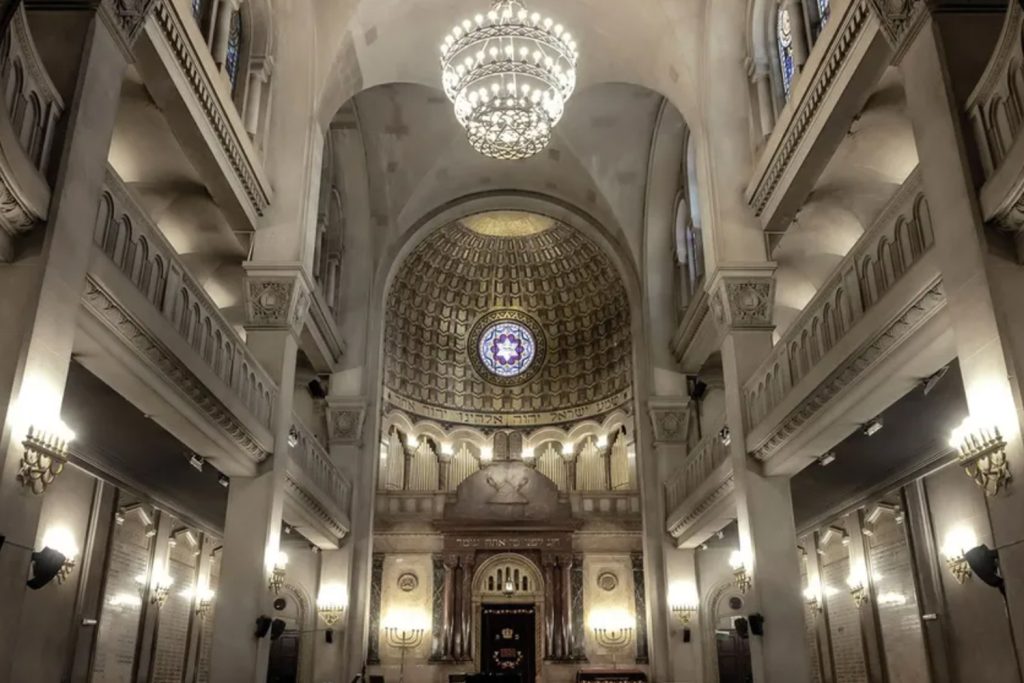Exploring the Vibrant Jewish Community in Buenos Aires
Buenos Aires, the bustling capital of Argentina, is renowned for its rich cultural tapestry, and a significant thread in this vibrant fabric is its Jewish community. With a history that spans over a century, the Jewish community in Buenos Aires has not only contributed to the city’s diverse cultural landscape but also established a unique and dynamic presence that continues to thrive today.
A Rich Historical Tapestry
The Jewish presence in Buenos Aires dates back to the late 19th and early 20th centuries when waves of Jewish immigrants arrived from Eastern Europe fleeing persecution and seeking new opportunities. These immigrants were instrumental in shaping the city’s cultural and economic landscape. Today, the Jewish community in Buenos Aires is one of the largest and most influential in Latin America, with a deep-rooted history that is reflected in its vibrant cultural and religious life.

Cultural and Religious Life
The Jewish community in Buenos Aires is characterized by a rich tapestry of cultural and religious practices. From traditional Ashkenazi and Sephardic customs to modern Jewish practices, the community embraces a wide range of traditions. The city is home to numerous synagogues, schools, and community centers that serve as hubs for Jewish life.
Buenos Aires is home to a significant number of synagogues, reflecting its substantial Jewish community. There are approximately 70 working synagogues in the city. These range from large, historic synagogues to smaller, more contemporary ones, serving various branches of Judaism, including Ashkenazi, Sephardic, and Reform traditions. Each of these synagogues plays a crucial role in maintaining and celebrating the vibrant Jewish culture and heritage in Buenos Aires.
One of the most notable landmarks is the “Congregación Israelita de la República Argentina” (CIRA), a historic synagogue that stands as a testament to the community ‘s enduring legacy. “Templo Libertad”, established in the late 19th century and inaugurated in 1932, has been a cornerstone of Buenos Aires’ Jewish community. It symbolizes a pivotal moment in the community’s integration and growth in Argentina.
Architectural Highlights
Templo Libertad showcases early 20th-century Jewish architecture, combining classical and modern elements. Its design is notable for its grandeur and elegance, featuring an ornate facade, a spacious interior with intricate woodwork and stained glass, and a prominent bimah.
Jewish Cuisine and Festivals

Jewish cuisine in Buenos Aires is a delightful blend of traditional recipes and local flavors. Popular dishes such as “empanadas” and “matzo ball soup” reflect the culinary fusion that characterizes the Jewish-Argentinian experience. The community also celebrates Jewish holidays with vibrant festivities, including Hanukkah parties and Passover seders, which are often open to the broader public.
One of the highlights of the Jewish cultural calendar is the annual Purim festival, known for its lively parades and costume parties throughout the city. These celebrations are a testament to the community’s commitment to preserving its traditions while engaging with the broader Buenos Aires culture.
Community and Social Impact
The Jewish community in Buenos Aires is deeply involved in social and charitable activities. Organizations like the **Fundación Judaica** and the **Hesed Foundation** provide essential services to those in need, reflecting the community’s strong commitment to social justice and support for others.
Moreover, the community plays an active role in interfaith dialogue and cultural exchange, fostering mutual understanding and cooperation among different groups in Buenos Aires. This spirit of inclusivity and collaboration enriches the city’s multicultural environment.
Visiting Buenos Aires: A Cultural Journey
For visitors, Buenos Aires offers a unique opportunity to explore the vibrant Jewish community and its contributions to the city’s cultural heritage. Walking tours through neighborhoods with significant Jewish history, such as Villa Crespo and Once, provide insight into the community’s past and present.
Also, local Jewish museums and cultural centers offer educational exhibits and events that showcase the rich history and contributions of the Jewish community. The “Museo Judío de Buenos Aires” is a must-visit for those interested in learning more about the community’s history and impact. Also a must-visit is the Museo de la Shoah de Buenos Aires.
Before you visit Jewish Institutions in Buenos Aires
It’s important to note that entry to synagogues and many Jewish institutions requires a prior appointment and authorization from the institutions. During peak months (December to March), visits are limited by the number of people. For security reasons, access to these institutions is only permitted with a passport or ID.
Our company organizes Jewish heritage tours in Buenos Aires and handles all logistics and permits. However, we need to know your plans in advance to ensure everything is arranged smoothly. Learn more about our Jewish Tour of Buenos Aires in this LINK
Jewish Tour in Buenos Aires
We offer Jewish heritage tours in Buenos Aires, available Monday through Friday (with Friday mornings only). Our in-depth tours explore key sites and Jewish institutions, offering a detailed look at the community’s history, evolution, and contemporary life in Argentina. If you’re keen to delve into this rich heritage, contact us to discover more about the itinerary through this link.
Each tour is uniquely customized to match your specific interests, ensuring a personalized experience. The Jewish community in Buenos Aires is truly fascinating, with the city hosting many of the most significant Jewish institutions worth visiting.






No comment yet, add your voice below!